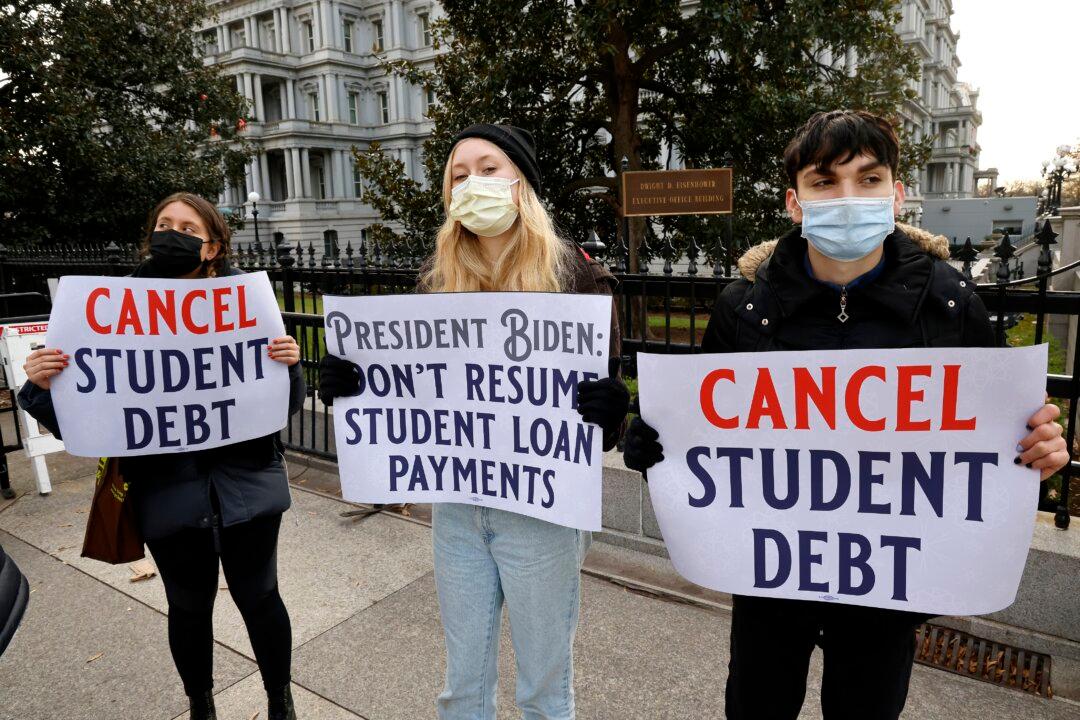A federal appeals court has rejected the Biden administration’s bid to freeze a Texas judge’s ruling that President Joe Biden’s plan to cancel student loan debt was illegal.
In a Nov. 30 ruling, the New Orleans-based 5th U.S. Circuit Court of Appeals denied the Biden administration’s request to put on hold a judge’s Nov. 10 order vacating the $400 billion student debt relief program in a lawsuit brought forward by conservative advocacy group Job Creators Network Foundation (JCNF).





